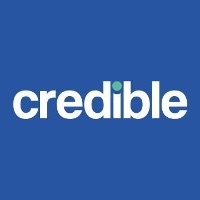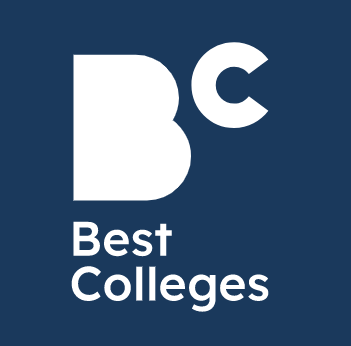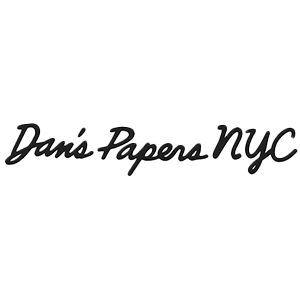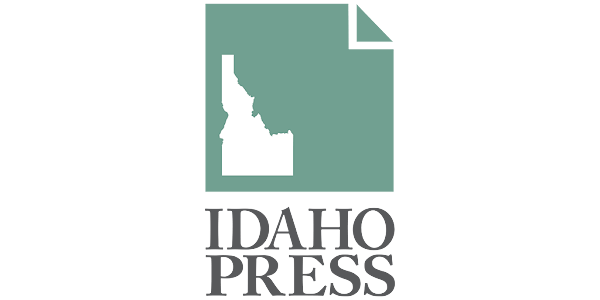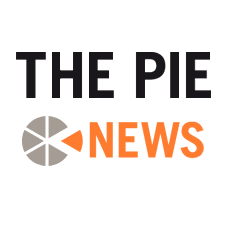
IvyWise in the News
IvyWise experts frequently share their education and admissions knowledge with a global audience through regular media appearances and articles.
Recent Media

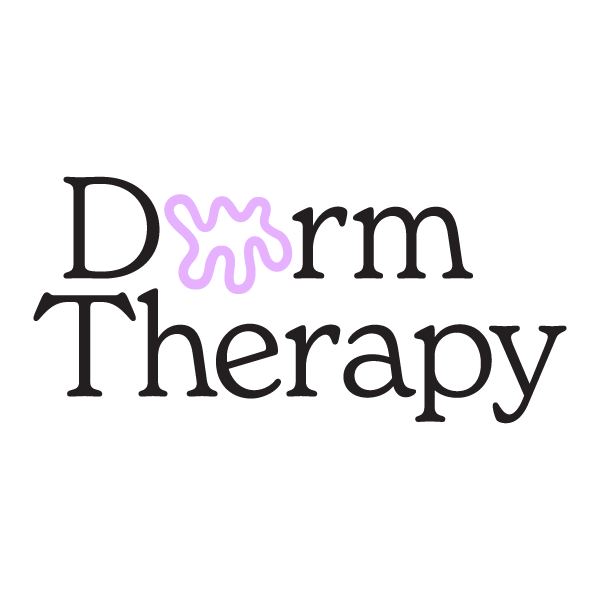
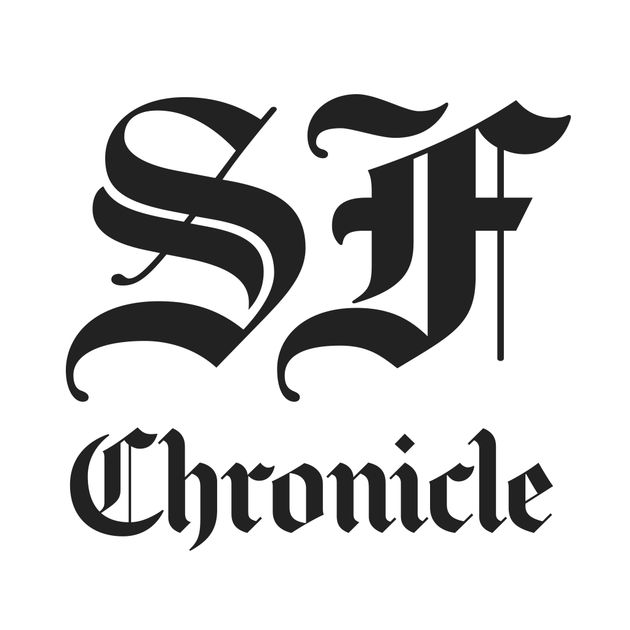


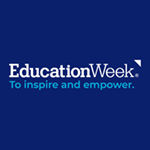
Oct 04, 2024
Grades and Standardized Test Scores Aren’t Matching Up. Here’s Why
Read More
Oct 01, 2024
Six common mistakes to avoid in the college application process and on the Common App
Read More
Sep 23, 2024
Regular decision applicants say Brown was their top choice. Why didn’t they apply early?
Read More
Sep 12, 2024
College Uncovered: Un-welcome to College
Read More
Sep 04, 2024
Why this will be the most extraordinary season for college admissions in years
Read More
Aug 29, 2024
Strategies to Bridge the Gap Between Financial Aid and College Costs
Read More
Aug 23, 2024
6 Study Tips for College-Bound Teens
Read More
Aug 20, 2024
Another Top University Brings Back Standardized Tests to Admissions
Read More
Aug 15, 2024
How to stand out to colleges when attending a competitive high school
Read More
Aug 15, 2024
What are extracurricular activities for?
Read More
Aug 15, 2024
10 Ways International Students Can Pay for U.S. Graduate School
Read More
Aug 07, 2024
The 15 Graduate Schools With the Best Return on Investment
Read More
Aug 07, 2024
The 3 Biggest Mistakes Students Make When Applying to College
Read More
Aug 07, 2024
The Best Public Universities
Read More
Aug 07, 2024
Is BU the New MIT? Introducing the 15 Alt-Ivies of 2024.
Read More
Jul 25, 2024
7 Critical Steps to Find the Right Grad School
Read More
Jul 25, 2024
What Admission Counselors Don’t Tell You
Read More
Jul 03, 2024
Dr. Kat Cohen on Top Tips for College Admissions and Her Summers in the Hamptons
Read More
Jul 02, 2024
5 Ways to Make Your Scholarship Essay Stand Out
Read More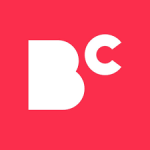
Jun 26, 2024
Top Private Universities Offer ‘Guaranteed’ Transfer Option
Read More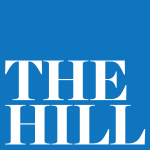
Jun 22, 2024
How high schoolers can use summer to boost their college application appeal
Read More
Jun 17, 2024
What the Pool of College Applicants Looked Like After Affirmative Action Ban
Read More
Jun 13, 2024
So Your Teen Wants a Summer Job—How Much Should Parents Step In to Help?
Read More
Jun 12, 2024
Can a College ‘Rating’ — Instead of a Ranking — Really Work?
Read More
Jun 11, 2024
Marymount students concerned about majors, maintaining school’s identity amid
Read More
Jun 10, 2024
NEWSLINE: Universities in the South are quickly becoming more popular, especially with those in
Read More
Jun 10, 2024
Colleges Want to Know What You Did Last Summer
Read More
Jun 07, 2024
Why High Schoolers in the Northeast Are Flocking South for College
Read More
May 30, 2024
How to Land a Marcomms Internship: A Guide for College Students
Read More
May 29, 2024
The End is Near for the Upper East Side’s Marymount Manhattan College
Read More
May 13, 2024
Some Colleges Are Requiring Test Scores Again: What it Means for Applicants
Read More
Apr 26, 2024
Wake-up call ahead as universities revive testing requirements
Read More
Apr 23, 2024
Navigating Higher Ed’s Rising Costs: Strategies for Affordability
Read More
Apr 16, 2024
Considering the Long-Term Impact of Rankings Changes
Read More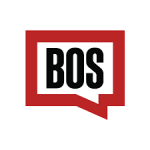
Apr 16, 2024
Readers agree: Harvard is right to bring back standardized tests
Read More
Mar 25, 2024
9 Ways to Help Your Teen With the College Decision
Read More
Mar 19, 2024
The SAT’s Return Has Frantic Parents Hiring $500-an-Hour Tutors
Read More
Mar 16, 2024
Vail’s rigorous coursework changes spark debate
Read More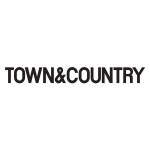
Feb 29, 2024
Has College Admissions Returned to a Normal Level of Crazy?
Read More
Feb 26, 2024
Brown community members reflect on video introduction in admissions
Read More
Feb 24, 2024
Traits Business Schools Seek in Applicants
Read More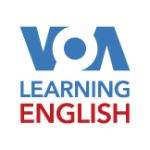
Feb 24, 2024
How International Students Should Think about Writing, AI
Read More
Feb 15, 2024
6 Key Qualities of Successful MBA Candidates
Read More
Feb 13, 2024
How to Perform Well on SAT, ACT Test Day
Read More
Feb 10, 2024
Dartmouth Will Again Require Standardized Tests
Read More
Feb 05, 2024
48,881 students apply to class of 2028, down 5% from last year
Read More
Feb 02, 2024
Another FAFSA Delay Alarms Students, Parents, Colleges, Higher Ed Advocates
Read More
Feb 02, 2024
A tool across eras: How college rankings continue to shape school prestige
Read More
Jan 09, 2024
How to Prepare for a College Admissions Interview
Read More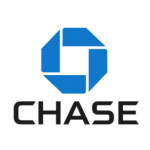
Jan 03, 2024
Does volunteering actually matter on college applications?
Read More
Dec 21, 2023
What U.S. College Waitlists Mean for International Students
Read More
Dec 20, 2023
How to Get Into Columbia University: Tips From Real Students and Experts
Read More
Dec 18, 2023
Class of 2028 Admissions Decisions
Read More
Dec 15, 2023
How to Make an “It” College Happen: Inside Vanderbilt’s Hot Streak
Read More
Dec 07, 2023
3 Reasons to Skip Applying to College Early
Read More
Nov 15, 2023
How to Get Into Stanford: 5 Tips From Admitted Students and Experts
Read More
Nov 15, 2023
SAT To Go Fully Digital In 2024
Read More
Oct 31, 2023
Everything You Need to Know About College Rolling Admissions
Read More
Oct 25, 2023
The SAT Is Making a Comeback. Here’s a Look at the Numbers and What They Tell Us
Read More
Oct 13, 2023
Parents are sharing the embarrassing questions their kids asked when they went off to college:
Read More
Oct 03, 2023
Giant Projects, Big Bucks and an AI Arms Race
Read More
Sep 12, 2023
Common Reasons College Applications Get Rejected
Read More
Sep 11, 2023
What a Minor Is and Why It May (or May Not) Matter
Read More
Aug 21, 2023
Letter of Recommendation Examples for College Applicants
Read More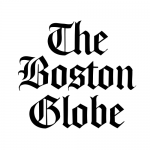
Aug 14, 2023
Harvard, UMass, Tufts update college applications after Supreme Court ruling on
Read More
Aug 09, 2023
What International Students Should Know About Academic Integrity
Read More
Aug 03, 2023
Duke, Baruch, or Bust: Parents Debate If Pricey Private Schools Are Still Worth It
Read More
Aug 03, 2023
The 15 Colleges with the Best Alumni Networks
Read More
Aug 03, 2023
The Hottest College in Boston Is… Northeastern?
Read More
Jul 25, 2023
The Liberal Arts Colleges with the Best Return on Investment
Read More
Jul 23, 2023
The Slow Dismantling of College Legacy
Read More
Jul 19, 2023
Do good bosses even exist? These standout leaders prove they do
Read More
Jul 15, 2023
Most Ivy League Schools Now Have Female Presidents
Read More
Jul 14, 2023
From College Advising to Teacher Preparation: Affirmative Action Ruling May Reshape K-12
Read More
Jul 14, 2023
Considering a Catholic University? Here’s What to Know
Read More
Jul 12, 2023
College Admission Post-Affirmative Action: What Educators Need to Know
Read More
Jun 27, 2023
Here’s What Graduate Schools Think About Your College
Read More
Jun 23, 2023
Reporting on College Rankings and Ratings
Read More
Jun 12, 2023
10 College Costs Other Than Tuition and Housing
Read More
Jun 11, 2023
Maximizing Your Chances of Winning Financial Aid
Read More
May 26, 2023
How to appeal a financial aid suspension
Read More
Apr 24, 2023
How UAE students can apply to universities abroad
Read More
Apr 25, 2023
How to Find Scholarships for Graduate School
Read More
Apr 06, 2023
What Is a Good GRE Score for Graduate School Admissions?
Read More
Apr 01, 2023
Ambitious parents are spending hundreds of thousands on consultants to help get
Read More
Mar 31, 2023
Parents Are Paying Consultants $750,000 to Get Kids Into Ivy League Schools
Read More
Mar 31, 2023
Parents Are Paying Consultants $750,000 to Get Kids Into Ivy League Schools
Read More
Mar 29, 2023
Would GPT-4 Get Into Your College or University?
Read More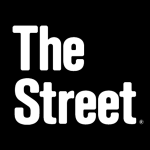
Mar 26, 2023
An Inside Look at College Financial Aid Letters
Read More
Mar 24, 2023
The Promise and Peril of ChatGPT and AI Platforms in Higher Ed
Read More
Mar 08, 2023
Can Your College Admissions Offer Be Revoked?
Read More
Mar 04, 2023
Students switch up college plans as states pass anti-LGBTQ laws
Read More
Feb 24, 2023
Is This the Best College You’ve Never Heard Of?
Read More
Feb 24, 2023
Is This the Best College You’ve Never Heard Of?
Read More
Feb 16, 2023
How to Perform Well on SAT, ACT Test Day
Read More
Feb 03, 2023
How to Find Private School Scholarships
Read More
Jan 30, 2023
Here’s How Black College Applicants Can Get the Most Out of Scholarship Season
Read More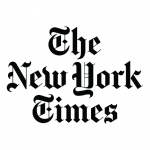
Dec 31, 2022
I Edited Mental Illness Out of My College Applications. I’m Not Alone.
Read More
Dec 16, 2022
These 15 Colleges Have the Best Return on Investment—Harvard Isn’t One of Them
Read More
Dec 16, 2022
These 15 Colleges Have the Best Return on Investment—Harvard Isn’t One of Them
Read More
Nov 17, 2022
13 Test Prep Tips for SAT and ACT Takers
Read More
Oct 28, 2022
What to Do While Waiting for College Admission Decisions
Read More
Oct 28, 2022
5 Ways to Get a Tuition Discount
Read More
Oct 10, 2022
How Many Colleges Should I Apply to?
Read More
Sep 22, 2022
What a College Minor Is and Why It Matters
Read More
Sep 22, 2022
The 15 Most Expensive Colleges in the U.S.
Read More
Sep 22, 2022
The 15 Most Expensive Colleges in the U.S.
Read More
Sep 15, 2022
How to Ask for a Letter of Recommendation for College
Read More
Sep 13, 2022
Common Reasons College Applications Get Rejected
Read More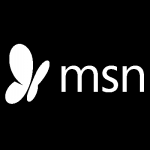
What You Need to Know About College Tuition Costs
Read More
Sep 08, 2022
Consider Both Liberal Arts Colleges, National Universities
Read More
Sep 07, 2022
The Common App: Everything You Need to Know
Read More
Sep 06, 2022
Is College Admission Subjective Or Objective? What Experts Say
Read More
Aug 30, 2022
Gwyneth Paltrow x Kat Cohen: Navigating the College Admissions Process
Read More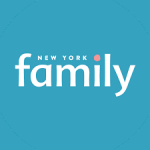
Aug 29, 2022
Choosing the Right After-school and Extra Curricular Activities
Read More
Aug 22, 2022
A Complete Guide to the College Application Process
Read More
Aug 16, 2022
How Colleges Choose Which Students to Admit
Read More
Aug 04, 2022
How the Overturning of Roe v. Wade May Affect Students’ College Decisions
Read More
Aug 02, 2022
I Applied to College as a Homeless Teen. I Felt Like a Liar the Whole Time.
Read More
Jul 22, 2022
What Students Should Know About the GPA Scale
Read More
Jul 21, 2022
In Her Own Words: Katie Burns’ advice to parents and kids on college choices
Read More
Jul 18, 2022
Months After ED Data Released, Trinity Delays Announcing the Enrollment of the Class of 2026
Read More
Jul 14, 2022
What Is a Good MCAT Score?
Read More
Jun 22, 2022
How to Deal With a Bad College Roommate
Read More
Jun 17, 2022
The Hottest College in Boston Is… Northeastern?
Read More
Jun 17, 2022
The Hottest College in Boston Is… Northeastern?
Read More
Jun 04, 2022
High School Students Making the Most of Summer Break: Plan For College
Read More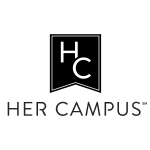
Jun 01, 2022
4 Tips for Staying in Touch With Your Professors Post-Grad
Read More
May 31, 2022
How High School Students Can Make the Most of Their Summer Break
Read More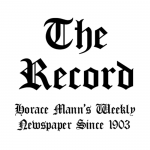
May 27, 2022
Feature: Investigating the Ethics of Out-of-School College Counseling
Read More
May 25, 2022
How to Pay for College Using Overlooked Strategies
Read More
May 19, 2022
Waitlisted? Here Are Your Options
Read More
May 09, 2022
Interested in Investment Banking? Here’s How to Land a Job
Read More
May 02, 2022
College Admission Insights
Read More
Apr 30, 2022
Choosing A Business School? Consider The ‘Four C’s’
Read More
Apr 28, 2022
College Counselor discusses National College Decision Day
Read More
Apr 27, 2022
Seeking College-Admissions Edge, More Students Take Gap Year
Read More
Apr 20, 2022
GMAT vs. GRE: Key Differences Between the Tests
Read More
Apr 12, 2022
Trinity Announces ED Results for Class of 2026; Applications Rise From Previous Year
Read More
Apr 08, 2022
Decision Time: Which MBA Program Offer Should You Accept?
Read More
Apr 08, 2022
Navigating the College Waitlist
Read More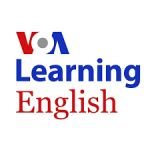
Apr 02, 2022
MIT Will Require SAT, ACT Again
Read More
Mar 30, 2022
Why Is It So Hard to Get Into Medical School?
Read More
Mar 29, 2022
Is Graduate School Worth the Cost?
Read More
Mar 14, 2022
5 U.S. College Admissions Mistakes International Students Make
Read More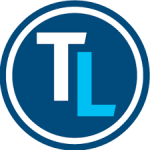
Mar 14, 2022
How Did the Pandemic Change STEM Careers?
Read More
Mar 08, 2022
How to Decide What Your College Major Should Be
Read More
Feb 23, 2022
Women Of The C-Suite: Dr Kat Cohen Of IvyWise On The Five Things You Need To Succeed As A C-
Read More
Feb 19, 2022
Will Scandal Change How People View College Rankings?
Read More
Feb 09, 2022
Paying for Meals at College: What to Know About Costs
Read More
Feb 07, 2022
The SAT is Changing: Here’s What to Know
Read More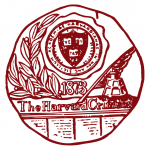
Feb 07, 2022
Admissions Consultants Praise College Board’s Shift to Virtual SAT
Read More
Feb 04, 2022
Enrollment applications for class of 2026 passes 10,000 marking new record
Read More
Feb 03, 2022
Colleges Send Mistaken Acceptances Every Year. Why Does This Keep Happening?
Read More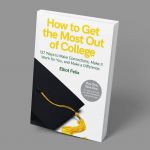
Feb 02, 2022
How to Get the Most out of College: 127 Ways to Make Connections, Make it Work for You, and Make
Read More
Jun 22, 2022
Dartmouth to Admit International Students Without Considering Ability to Pay
Read More
Dec 29, 2021
The Impact of COVID-19 on Higher Education
Read More
Dec 15, 2021
6,305 students apply early decision to Columbia
Read More
Dec 08, 2021
How to Understand the Changes in Standardized Testing
Read More
Nov 15, 2021
Former Wharton Admissions Deputy: How To Get Into Your Target MBA Program
Read More
Nov 05, 2021
How to Get into the University of California System
Read More
Nov 01, 2021
Applying to business school? Here’s some advice.
Read More
Oct 21, 2021
Schools Are Doing Away With Admissions Advantages for Children of Alumni. Will It Change
Read More
Oct 11, 2021
Academe Reacts to Convictions in Admissions Trial
Read More
Oct 06, 2021
What’s New on the 2022-2023 FAFSA
Read More
Sep 27, 2021
Is It Time To Ignore College Rankings? Experts Weigh In
Read More
Sep 17, 2021
What You Need to Know About College Tuition Costs
Read More
Sep 13, 2021
A Complete Guide to the College Application Process
Read More
Sep 12, 2021
IvyWise Founder & CEO Dr. Kat Cohen on Weekend Morning News KTLA
Read More
Aug 11, 2021
A fake COVID card can cause real trouble for college students. It’s also likely a crime.
Read More
Aug 09, 2021
Where Will Students Apply?
Read More
Aug 02, 2021
The Common App: Everything You Need to Know
Read More
Jul 23, 2021
How to Make a College List
Read More
Jul 22, 2021
What Does Need-Blind Admission Mean for International Students?
Read More
Jul 08, 2021
21 Places Worth Seeing on College Tours
Read More
Jun 28, 2021
High School Seniors Are Changing Their College Plans Because Of Covid
Read More
Jun 23, 2021
50 Questions to Ask on a College Visit
Read More
Jun 04, 2021
Top Undergrad Majors at the Best Medical Schools
Read More
May 26, 2021
The Persistent Grip of Social Class on College Admissions
Read More
May 24, 2021
20 Best Universities Podcasts of 2021
Read More
May 15, 2021
20 Best Process Planning Podcasts of 2021
Read More
May 13, 2021
Why the MCAT Is Harder Than a Typical College Exam
Read More
Apr 30, 2021
What Does Harvard’s Record-Low Admissions Rate Mean For the College — And For Higher
Read More
Apr 29, 2021
‘Gray Area’: College Admissions and the Private Counseling Machine
Read More
Apr 28, 2021
Tulane Class of 2025 different than any class before it
Read More
Apr 26, 2021
GMAT vs. GRE: Key Differences Between the Tests
Read More
Apr 23, 2021
The College Waitlist is Longer Than Usual This Year—Here’s What Teens Can Do
Read More
Apr 13, 2021
College admits 8% of applicants for Class of 2025, will host prospective students
Read More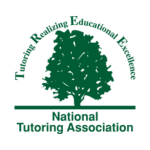
Apr 13, 2021
Exploring Independent Projects Using Social Media in COVID Times
Read More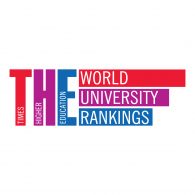
Apr 12, 2021
Elite US universities boast record applications – and rejections
Read More
Apr 09, 2021
How to Get Admitted Off a College Waitlist
Read More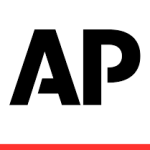
Apr 07, 2021
Top colleges see record application numbers amid pandemic
Read More
Apr 05, 2021
BU Class of 2025 accepted among record-breaking pool of applicants, continues
Read More
Apr 05, 2021
A Great Admissions Year, for Some
Read More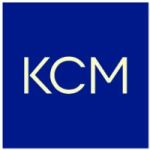
Mar 24, 2021
How to Apply (and Get in) to College During a Pandemic
Read More
Mar 16, 2021
The Unexpected Benefits of Attending a Virtual College Fair
Read More
Mar 14, 2021
GMAT vs. GRE: Which Exam Should You Take?
Read More
Feb 25, 2021
How to Find Admissions Statistics for College
Read More
Feb 24, 2021
Everything You Need to Know About the SATs
Read More
Feb 22, 2021
How to Choose a Med School for Pediatrics
Read More
Feb 22, 2021
These Public Schools Offer an Honors College
Read More
Feb 19, 2021
As admissions season descends, warning signs appear for low-income applicants
Read More
Feb 02, 2021
Here’s exactly how you can get yourself a spot at a top business school
Read More
Feb 01, 2021
Weighing Colleges Amid the Pandemic
Read More
Jan 25, 2021
The College Board’s (Smaller?) Future
Read More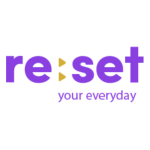
Jan 21, 2021
Applying to College? Here’s What You Need to Know About Including Extracurriculars Activities
Read More
Jun 20, 2021
College Board Kills Subject Tests and SAT Essay
Read More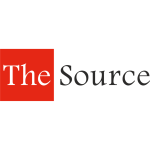
Jan 19, 2021
Want Your Child to Attend a Prestigious International University?
Read More
Jan 12, 2021
The Importance of Executive Functioning Skills Coaching
Read More
Jan 11, 2021
Admissions Have and Have-Nots
Read More
Dec 27, 2020
Benefits of an American Education
Read More
Dec 23, 2020
How to Identify Safety Schools in College Admissions
Read More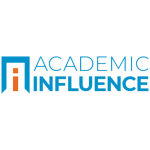
Dec 16, 2020
The Best College Admissions Consulting Agencies
Read More
Nov 24, 2020
IvyWise: Get Smart
Read More
Nov 24, 2020
Why Your Kids Need to Prepare for College Before High School
Read More
Nov 16, 2020
What Can You Do With a Psychology Degree?
Read More
Oct 21, 2020
How to Write About Coronavirus in a College Essay
Read More
Sep 11, 2020
How to Apply to College During the Coronavirus Pandemic
Read More
Sep 02, 2020
An Expert’s 5 Tips On Acing College Apps This Fall
Read More
Aug 03, 2020
How College Financial Aid Disbursement Works
Read More
Jul 10, 2020
How Easy Is It to Cheat on the SATs, Anyway?
Read More
Jun 05, 2020
Should I Take a Gap Year if My College Campus is Closed This Fall?
Read More
Jun 02, 2020
Impact Of Coronavirus (COVID-19) On College Tuition And Finances
Read More
Jun 01, 2020
How to Bridge a Financial Aid Gap This Fall
Read More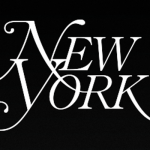
May 11, 2020
A College Adviser on What She’s Heard From Admissions Officers and Freaked-Out Students
Read More
Apr 28, 2020
Will colleges reopen in the fall?
Read More
Apr 23, 2020
These Public Schools Offer an Honors College
Read More
Apr 09, 2020
4 ways to take advantage of virtual tours and ‘visit many college campuses in one
Read More
Apr 03, 2020
College Admissions and Coronavirus: How Students and Families Should Navigate the New
Read More
Mar 20, 2020
Looking To Get Into a Top College? These Are the Best College Admissions Consulting Companies of
Read More
Mar 13, 2020
How The Coronavirus Pandemic Is Wreaking Havoc With The SAT
Read More
Jan 28, 2020
10 Costs to Expect When Applying to Medical School
Read More
Jan 02, 2020
De-stressing the College Admissions Process
Read More
Oct 25, 2019
What Students Should Know About SAT Prep Classes
Read More
Oct 10, 2019
How to Find and Secure Scholarships for College
Read More
Oct 04, 2019
Here’s How Much Medical Students are Paying Just to Get Into School
Read More
Sep 26, 2019
3 U.S. College Admissions Mistakes International Students Make
Read More
Sep 05, 2019
An After-School Routine to Help Kids and Parents Beat Homework Stress
Read More
Aug 23, 2019
No, Bribes Outlined in College Admission Scandal Aren’t The Same As Donating to University:
Read More
Aug 23, 2019
Wising Up In Ivy’s Education!
Read More
Aug 22, 2019
A College Applicant Writes About Mental-Health Challenges. Should Admissions Red-
Read More
Aug 22, 2019
How to Stand Out When Applying to US Universities: 4 Tips
Read More
Aug 20, 2019
How to Reduce College Admissions Stress in the Wake of Operation Varsity Blues
Read More
Aug 18, 2019
Top 15 L.A. Public High Schools for Hollywood Families
Read More
Aug 13, 2019
Former Admissions Officer Weighs in on the “Varsity Blues” College Admissions Scandal
Read More
Aug 12, 2019
How Long Does it Take to Get a PhD Degree?
Read More
Aug 09, 2019
How to Turn a Summer Construction Job into a Killer College Essay
Read More
Aug 02, 2019
How to Choose the Right Extracurriculars for Your Child
Read More
Jul 18, 2019
What Are Your Chances of Getting Into Med School?
Read More
Jul 13, 2019
Hit the Beach, Then Hit the Books—Tutors Tag Along on Family Vacations
Read More
Jul 11, 2019
What the GMAT Is and How to Prepare for the Test
Read More
Jun 26, 2019
How to Get Into College: 7 Strategies
Read More
Jun 18, 2019
4 Key Lessons Parents of High Schoolers Must Learn About Planning for College
Read More
Jun 14, 2019
Top Undergrad Majors at the Best Medical Schools
Read More
May 30, 2019
What Type of Research Impresses Med Schools?
Read More
May 23, 2019
What Graduate Schools Think About Your College
Read More
May 22, 2019
What Colleges Look for: 6 Ways to Stand Out
Read More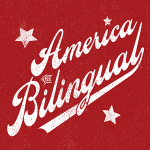
May 15, 2019
Buds of Bilingualism
Read More
Apr 05, 2019
The Best Ways to Appeal College-Aid Offers
Read More
Mar 01, 2019
School’s Never Out: Lifelong Learning Can Benefit Your Career, Social Life – Even Your
Read More
Mar 29, 2019
How to Find Research-Focused Medical Schools
Read More
Mar 24, 2019
College Admissions Fact-Checking
Read More
Mar 18, 2019
Baystate Business: Seafood, ESG, College Admissions (Radio)
Read More
Mar 18, 2019
Here Are 8 Organizations Helping Disadvantaged Students
Read More
Mar 18, 2019
College Cheating Scandal Shines Light on Admissions Process
Read More
Mar 16, 2019
College Cheating Scandal: Two Ex-admissions Officers Explain the Behind-the-
Read More
Mar 13, 2019
4 Counselors on the College Admissions Scandal
Read More
Mar 13, 2019
The Legitimate World of High-End College Admissions
Read More
Mar 13, 2019
When to Apply to College
Read More
Mar 15, 2019
Education Consultant Warns of Sketchy Services in B.C. Amid U.S. College Admissions
Read More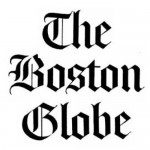
Mar 13, 2019
Confessions of a Former MIT Admissions Director
Read More
Mar 15, 2019
College Scandal Did a Terrible Disservice to Admissions: Former MIT Admissions Officer
Read More
Mar 12, 2019
Admissions Expert Weighs in on the Felicity Huffman, Lori Loughlin Admissions Cheating
Read More
Mar 12, 2019
Hollywood’s Go-To College Counselors Respond to Cheating Scandal: “This Is Not the
Read More
Mar 12, 2019
Former college admissions officers tell us just how broken the process is
Read More
Mar 12, 2019
The 15 best medical schools in the US, according to US News & World Report
Read More
Feb 14, 2019
All the Costs You Should Consider Before Applying to Business School
Read More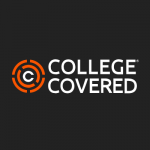
Feb 14, 2019
5 Colleges for Serious Video Gamers
Read More
Feb 04, 2019
12 Highly Successful People on the Best Way to Avoid Burnout and Stay Creative
Read More
Jan 29, 2019
What a Fellowship Is and Why You Might Want One
Read More
Jun 08, 2019
Want to nail your job search? Treat it like you’re applying for college
Read More
Jun 07, 2019
Early admissions gets a second, and sometimes third, round
Read More
Jan 05, 2019
Most people believe 6 myths about millionaires, and it can keep them from building their own
Read More
Jan 01, 2019

